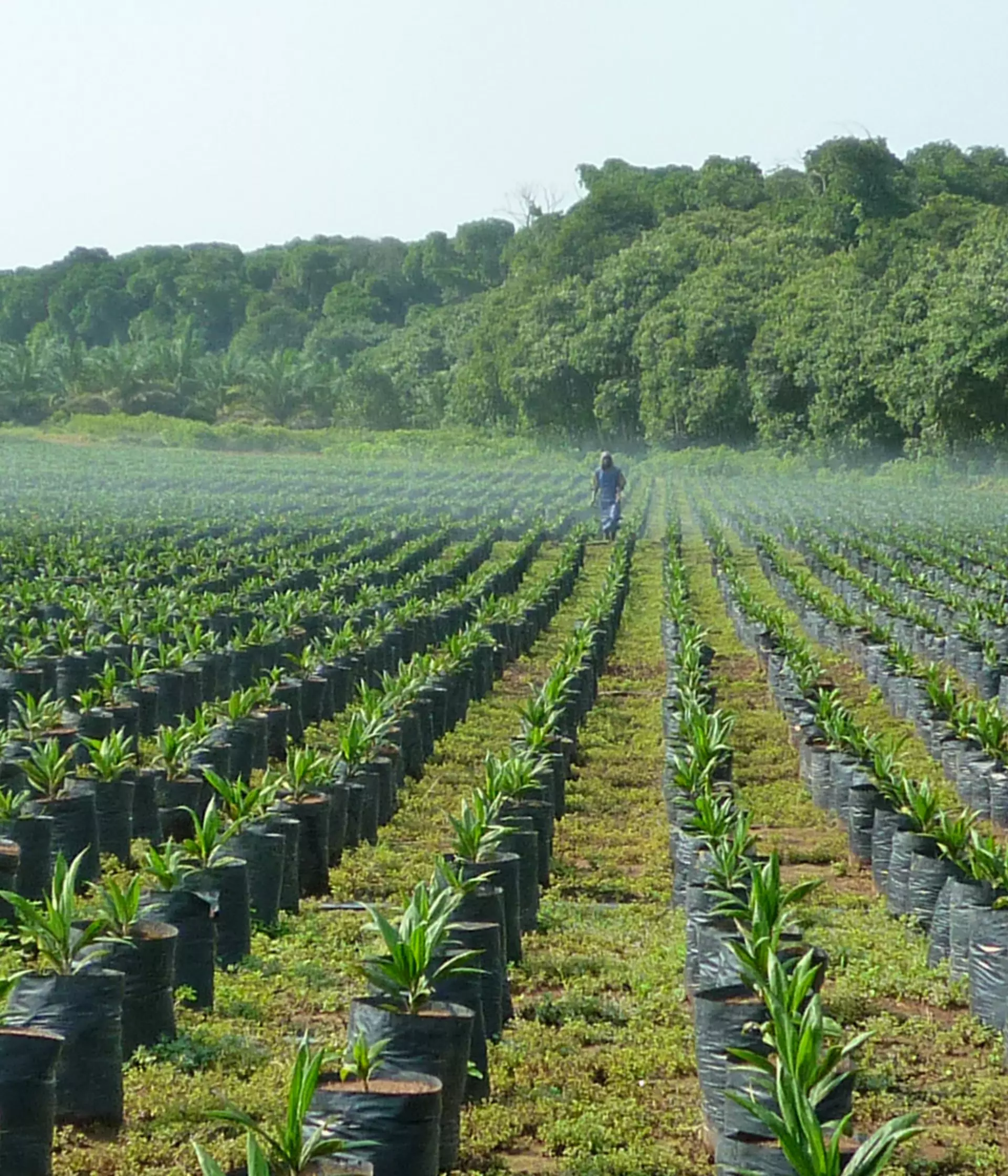At ZSL we are committed to ensuring that our vision, purpose and values are reflected in our procurement practices.
We recognise that unsustainable palm oil production has serious negative environmental and social impacts. However, we also recognise that the palm oil industry plays an important role in employment and economic development for many countries, and palm oil is currently the most efficient vegetable oil crop in terms of yield per hectare.
Replacing palm oil with other crops is not an effective solution as it may lead to further deforestation and biodiversity loss through increased land conversion. Boycotting palm oil could also result in diminished efforts to produce palm oil sustainably.
Supporting sustainable palm oil
Due to these factors, we believe that transforming the market to a sustainable supply of palm oil that supports both people and wildlife is the most practical solution. ZSL supports these aims through our conservation programmes in Indonesia and Cameroon working with palm oil companies and smallholders to reduce negative impacts on the ground.
We continue to develop SPOTT (Sustainability Policy Transparency Toolkit) – a free, online platform that assesses commodity producers and traders on the public disclosure of their operations, policies and progress related to environmental, social and governance (ESG) issues. Investors, buyers and other key influencers can use SPOTT assessments to inform stakeholder engagement, manage ESG risk, and increase transparency across multiple industries.
ZSL also actively participates in the Roundtable on Sustainable Palm Oil (RSPO) and contributed to the IUCN (International Union for Conservation of Nature) Oil Palm Task Force situation analysis on palm oil and biodiversity in 2018. Based on the findings of the IUCN report, we call on the industry to improve the management of areas set aside for conservation, and for better planning of new plantations to avoid clearing tropical forest and peatlands.
As such, where ZSL procures products containing palm oil, we are committed to sourcing only certified sustainable palm oil (CSPO) and palm kernel (CSPK) where available, as a minimum defined by the latest applicable version of the RSPO Principles and Criteria. ZSL defines sustainable palm oil according to the Principles and Criteria of the RSPO. Palm oil produced according to the RSPO standard not only protects forests, peatland, biodiversity, and wildlife, but also respects the rights of humans, workers, and local communities.
Conservation organisations supporting sustainable palm oil
ZSL has joined up with other conservation organisations who are committed to driving the palm oil industry in the right direction, by supporting a move to sustainable palm oil and not a blanket boycott.
Boycotting palm oil is a legitimate expression of consumers' social and environmental concerns, but we believe a blanket boycott of palm oil could lead to unintentional consequences.
Read the full statement for more details.
Our commitments
Specifically, by end of 2022, ZSL commits to:
- Ensuring that all food products sold by ZSL that contain palm oil are manufactured and prepared with CSPO/K only as procured through one of the following approved RSPO physical supply chain options:
- Identity preserved
- Segregated
- Mass balance
- Requiring all suppliers to be independently audited against RSPO Supply Chain Certification Standards and Systems by accredited certification bodies and hold valid supply chain certificates.
- Undertaking regular reviews to identify the use of palm oil in other products. Specifically, we will ensure that all palm oil in processed animal feed, cleaning, office supplies and retail products is physical CSPO/K in our UK offices and estates at ZSL London and Whipsnade Zoos. We will continue to engage the industry to develop physical certified supply chain options for palm kernel meal/expeller and other derivatives.
- Working towards monitoring our use of all oils and fats to ensure we reduce waste and unnecessary consumption.
Where ZSL operates internationally and/or physical supply chains are not readily available, we will accept products made with non-physical CSPO/K via the Book and claim option.
Additionally, ZSL commits to:
- Reviewing this Position Statement every two years as a minimum, or in response to substantive emerging issues to ensure this is still relevant and reflects ZSL’s stance on palm oil production.
- Reviewing our suppliers to ensure their continued compliance with our Position Statement, any suppliers who are in non-compliance will need to develop action plans to meet ZSL requirements.
- Monitoring our consumption of products containing palm oil. Responsibility for reviews and monitoring sits with the ZSL Sustainability Manager.
- Not sourcing products labelled “palm oil free” and engaging with suppliers to encourage use of CSPO/K over alternative oils, especially those without certification.
- Supporting efforts aimed at increasing the inclusivity of smallholders in sustainable palm oil supply chains, including through capacity building in producing countries and engagement with companies and multi-stakeholder platforms.
- Educating suppliers on our stance and conservation activities.
- Increasing public awareness of the debate surrounding palm oil and the role that supporting sustainable palm oil plays.
- Working to improve the sustainability and wildlife conservation credentials of the RSPO standard, other certification standards, and of global production in general.
In some instances, suppliers may produce products, which contain non-CSPO/K, but they must not supply these specific products to ZSL. In these cases, suppliers will be made aware of this Position Statement and ZSL will work with suppliers to encourage the use of CSPO/K across all their supply chains.
ZSL will ensure that its staff and external agents and contractors are kept aware of this Position Statement and their individual responsibilities. ZSL reserves the right to terminate its relationship with a supplier in the case of a breach of Policy informed by this Position Statement.
Creating a future with sustainable palm oil
Protecting orangutans and Sumatran tigers
Palm oil is found in half of packaged supermarket products. Its unsustainable production has led to decimation of rainforest, threatening species like tigers and orangutans.
